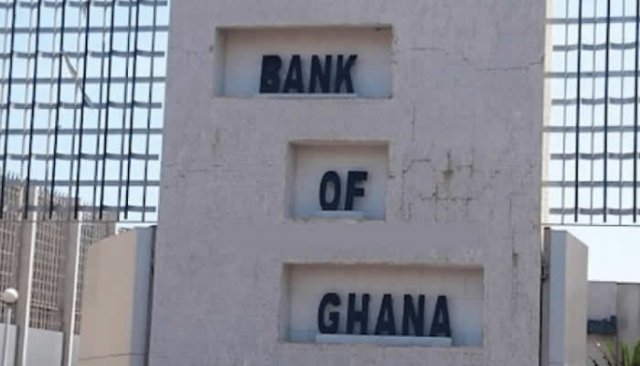Bank of Ghana crowdfunding policy commendable

The Bank of Ghana (BoG) last week issued a policy to guide banks in the development and promotion ofcrowdfunding products and services as part of measures to protect the investments of investors in the sector.
It said the essence of the policy was to guide banks in the development and promotion of crowdfunding product and services, modernise the banking industry and promote innovative digital crowdfunding solutions.
According to the BoG, the policy sought to ensure that crowdfunding services and products complied with data protection and customer privacy regulations, good governance and accountability, relevant Anti-Money Laundering and Combating the Financing of Terrorism norms, liquidation procedures and the protection of contributor’s interest.
The policy further enjoins the public to access crowdfunding products provided by regulated entities for their donation needs, for improved disclosure, transparency and accountability.
Whatis.com website explains that crowdfunding is a financing method that involves funding a project with relatively modest contributions from a large group of individuals, rather than seeking sums from a large groups of individuals or seeking substantial sums from a small number of investors.
Crowdfunding had been and continues to be used in the developed economies to raise capital to fund projects in the areas of agriculture, health and water.
Locally, known as “susu,” “nnoboa” or “ntoboa”, the BoG explained that crowdfunding involved the collection of funds, usually in small amounts from individuals, to support projects or causes and had been traditionally employed by families, groups of communities to mobilise money to meet the needs of their members.
In Ghana, the Central Bank said that the system was not new to the country and market women, farmers, fishmongers, traders, among other groups had used the informal system as an instrument in the mobilisation of critical funds to meet the pressing needs of members for instance, to raise capital for businesses, payment of medical bills, funeral contributions and children’s education.
“With the introduction of mobile money, association and corporate entities have found crowdfunding to ban efficient channel for collecting donations and for raising funds,” the BoG explained.
BoG said crowdfunding held the potential to promote financial inclusion and bring banking and financial services to the doorstep of the underserved communities , the marginalised and poor in society.
It indicated that there were four models of crowdfunding namely, donation crowdfunding, reward crowdfunding, equity crowdfunding and debt crowdfunding, otherwise known as peer-to-peer lending.
Touching on the models of crowdfunding permitted under the BoG’s policy, the banking regulator mentioned donation-based and reward-based crowdfunding.
These models, according to the BoG entailed the collection, holding and disbursement of funds and were available in the banks, Specialised Deposit-Taking Institutions (SDIs), Dedicated Electronic Money Issuers (DEMIs) and the Enhanced Payment Service Providers (EPSPS).
“The other models such as the peer-to-peer lending and equity models deal with securities and loans and leverage payment platform for the collection and disbursement of funds” the BoG said.
BoG explained that “by their nature, they fall within both the regulatory jurisdiction of the BoG and the Securities and Exchange Commission (SEC),” and indicated that the “BoG will collaborate with SEC to prevent possible regulatory arbitrage and to strengthen the stability of the financial system.”
According to the BoG, institutions permitted to operate donation and crowdfunding models were banks, SDIs, DEMIs and enhanced PSPs.
As alluded to early on, crowdfunding has become a veritable sources of raising funding
to finance or start businesses. When the banks and friends fail you in raising capital to finance your business, crowdfunding comes in handy.
The concept has even become more imperative in this era when the local and global economies are reeling under difficult financial challenges as a result of the outbreak of the novel coronavirus disease.
What started as a health problem and transformed into economic crisis is making it increasingly difficult to access relatively cheap capital from the capital and debts markets.
Thus crowdfunding, according to economic and financial experts, has become the cheapest and perhaps the easiest means to raise funds to start or invest in a business.
The advent of the internet has also made it easier to raise funds via the World Wide Web through crowding by the click of the button.
However, this seeming opportunity also presents a challenge due to cyber fraud and attacks as well as the anonymity of the fundraiser and the potential investors.
Also, the issue of terrorist financing has become critical to the international community in which investors must be careful not to ontribute to projects which finance terrorist activities andjeorpadise the peace and stability of the global community.
The recent challenges in the banking and financial services setors, occasioned by, among other factors, poor governance, insider trading among some bank officials, poor liquidity, have made the move by BoG to regulate the crowdfunding industry commendable.
Aside the aforementioned challenges the regulatory laxity of the BoG when it reneged on its responsibilities of properly regulating and supervising the banks, is said to have contributed to the banking crisis.
It is hoped BoG this time will stringently supervise the crowdfunding industry to
ensure that players in the space operate within the confines of the banking and financial laws and their mandate.
BoG should not shed any potential or real regulatory breaches of the operators in the crowdfunding industry so as to forestall the crisis recently experienced in the banking industry.
In this vein, it would be crucial for the banking regulator to provide real time information to investors about the operations of the companies in the crowdfunding sector.
It will be crucial for the operators within the crowdfunding space to act within their mandate and use the funds they raise for their intended purpose to provide good returns for their investors and build their trust also.
Investment in robust Information Communication Technology infrastructure would be crucial to combat cyber-attacks and fraud in this era of increase in nefarious activities of hackers.
While at it, the public as well as the investors are encouraged to be careful and do proper due diligence before joining or contributing to any crowdfunding projects.
It would also be pertinent for the investing public to be wary of crowdfunding schemes that offer mouthwatering and abnormal returns or profit. It may be a scam.
With the objective of government to make the country the financials services hub of Africa, following the implementation of the African Continental Free Trade Area (AFCTA) programme, it would be pertinent for the BoG to up its game and nip activities which would financially tarnish the image of the country in the bud.
Thus, the BoG must be commended for the swift move to regulate the crowdfunding sector to prevent the semblance of the recent challenges in the banking and the financial services sector in which a section of the public lost their investments.
BY KINGSLEY ASARE













